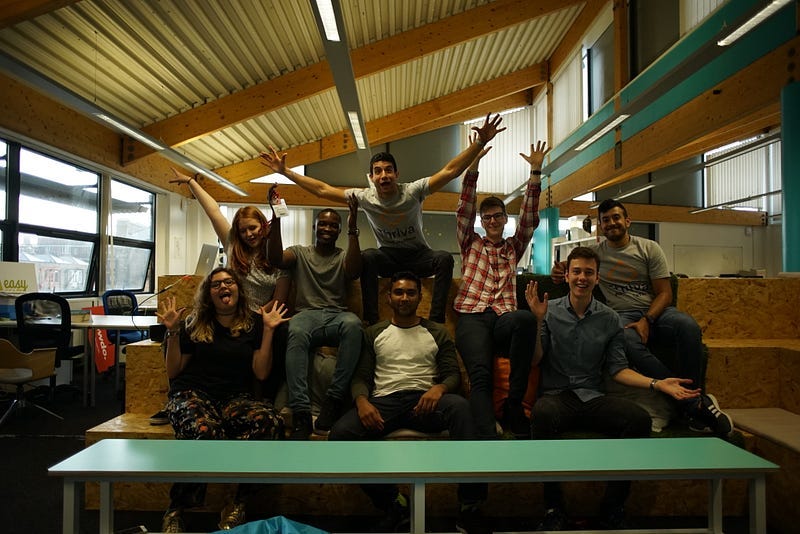Higher education: Creating a new story…
With A-Level results day in the UK a couple of weeks back, there have since been reports of both record numbers of university applications, offers given, and availability of course spaces via the university “clearing” system — “buyer’s market” is the phrase of choice that has been doing the rounds. It looks like a familiar story.
We’re now in 2016 — so what’s changed?
The vast majority of young people feel compelled, pressured even, to go to university as dictated by their social circles and society in general. This is despite many not knowing what they want to do (I certainly didn’t, aged 18), what they will get out of university, the chances of employment once they finish (let alone in an area they have a genuine interest in), and even how much debt they will be paying back — with interest rates rising this month, Newspapers reported last month that young people could be paying back more than £100k overall — more than twice what they borrowed. With university cohort sizes increasing, the quality of the individual experience is not getting any better.
One fact that many figures in the British Government have been keen to remind us of, is the fact that graduates will — on average — earn “x” amount more than a non-graduate over the course of their lifetimes. However:
A) There’s little/conflicting evidence to demonstrate this
The Guardian has reported that 2/3 of graduates do not feel their degree offers good value for money. And, indeed, if the “graduates earn more” rhetoric is true, then this is surely explained by the greater privileges in background and networks, for example, which the average university student (already) has.
B) By focusing purely on lifetime earnings, we are missing the point entirely
When it comes to overall life satisfaction, earnings play a surprisingly small factor. What’s more important is the work itself and the intrinsic motivation (or lack of) for it, and a range of other factors from the social relationship’s in one life through to the levels of freedom and autonomy we (perceive to) experience.
Some of the key shortcomings with education, and higher education, as a whole are:
1. It does not give young people any real sense of WHY they are, nor recognise the career choices now available in the 21st century
2. It fails to prepare young people to flourish in today’s rapidly-changing world, where the world of work and the everyday challenges being presented to us are also in flux
(e.g. emotional intelligence, creativity, curiosity — key skills in both life- and work-fulfilment terms, as we move towards more of a freelance/“gig” economy)
3. It should not be extortionate — and it is. £44k (and rising) debt is what graduates are faced with, and the overall payment back could be more than twice that amount. Is this fair?
In summary, the current system is a one-size-fits-all which does not have the best individual interests of each young person at heart. Employers have also begun to realise that traditional education and degrees aren’t true markers of success in the workplace (see here). So the system is to their detriment, too. (This helps to explain why firms are increasingly opting to hire school-leavers rather than graduates, and are looking at experience and softer-skills over credentials).
In other words, it has become quite clear that the university “piece of paper” has lost both value and relevance.
In London, this is where Thriva is hoping to change the existing landscape (read more below). It has become clear that real-life experience inside the workplace and in the world as a whole have enormous value for young people looking to find their way and make their mark. This is where gap years spent wisely and apprenticeships/other experience-based programmes offer both great value and cost.
As a young person, a parent or a teacher, it is crucial to decide and act based on the best interests of the young person whose future depends on it.
About Thriva Programme
A 6-month experience combining a 21st century curriculum with real-world experience, Thriva’s focus is on the young person and given the skills and mindsets to thrive in today’s world. Our host businesses are exciting startups and SME’s (making up 99.3% of the private sector and accounting for 49.8% of the UK economy).
The net cost of the programme is £zero — in fact, Thrivers pay as they earn, and they earn more from the programme than they pay. Cohort sizes will be kept small for maximum quality and individual experience. Learning will happen both inside and outside of the classroom, with a focus on experience and interactivity.
Thriva is a gap-year programme for young people fresh out of school or taking some time out a little later in life.
Thrivers get an innovative toolkit of “professional” and “life” skills, an amazing community + network, with a portfolio of projects + experience to demonstrate their value and carry them forward after the programme finishes.
from,
Jasraj
Update: after many happy conversations with students and companies, Thriva Programme is no longer running. We’re proud of our pilot, though!



